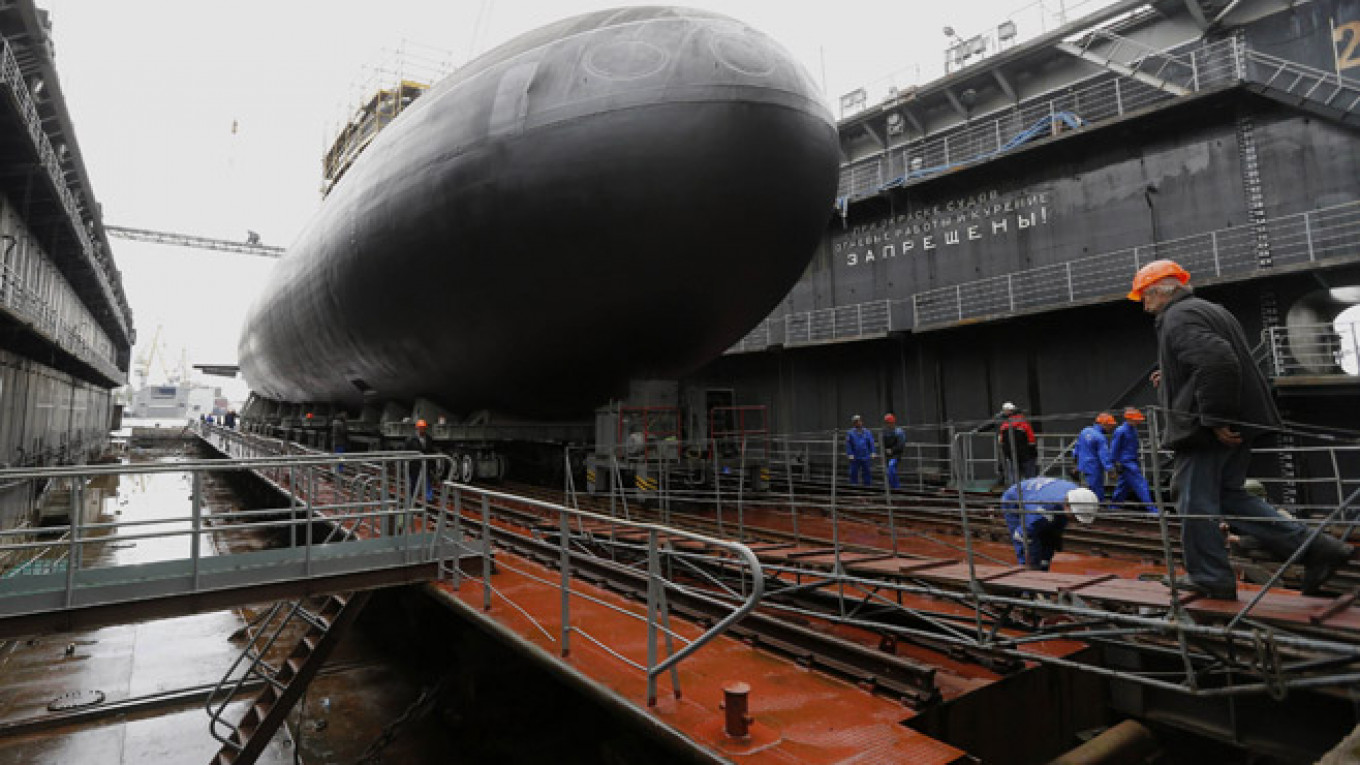The Russian Navy launched a new and improved Kilo-class diesel-electric submarine today in St. Petersburg. Named the Rostov-on-Don, the sub will join the Black Sea Fleet and further bolster Moscow's naval presence in the region.
"We expect that the Rostov-on-Don, following sea trials in the Baltic and Barents seas under its own power, will come to Sevastopol at the end of the year," a Black Sea Fleet representative said at the ceremony.
See photos of the submarine's launch here.
"In the next two years, six submarines of this type will be built for the Black Sea Fleet," he added.
Russia has shown a renewed strategic interest in the Black Sea since annexing the Crimean peninsula from Ukraine in March. In addition to reinforcing its naval presence with new submarines, Russia is currently awaiting the delivery of a French-made Mistral-class assault carrier that will be stationed in the Crimean city of Sevastopol — home to the Black Sea Fleet.
"Submarines of this class are ideal for the Black Sea Fleet's area of operations," Vice Admiral Alexander Fedotenkov said at the ceremony.
The Kilo-class submarines are known for being exceptionally quiet. The ship uses diesel generators to charge its batteries, which power the electric motors that turn the ships' propellers when it is underwater, making it even quieter than a nuclear powered submarine.
Diesel-electric submarines such as the Rostov-on-Don are much smaller than nuclear powered submarines, such as the new Yasen-class attack submarine that joined the Northern Fleet last week, and perform very different combat roles. While nuclear attack submarines are designed for long range deployments in the ocean depths, diesel-electric submarines are intended to sink surface vessels and other submarines in shallow waters closer to home.
Russia has exported 19 Kilo-class submarines over the years since they were introduced to the Soviet Navy in the 1980s, including exports to China, Iran and India, according to the Nuclear Threat Initiative, a nonprofit organization that tracks the proliferation behaviors of major world powers.
See also:
A Message from The Moscow Times:
Dear readers,
We are facing unprecedented challenges. Russia's Prosecutor General's Office has designated The Moscow Times as an "undesirable" organization, criminalizing our work and putting our staff at risk of prosecution. This follows our earlier unjust labeling as a "foreign agent."
These actions are direct attempts to silence independent journalism in Russia. The authorities claim our work "discredits the decisions of the Russian leadership." We see things differently: we strive to provide accurate, unbiased reporting on Russia.
We, the journalists of The Moscow Times, refuse to be silenced. But to continue our work, we need your help.
Your support, no matter how small, makes a world of difference. If you can, please support us monthly starting from just $2. It's quick to set up, and every contribution makes a significant impact.
By supporting The Moscow Times, you're defending open, independent journalism in the face of repression. Thank you for standing with us.
Remind me later.






